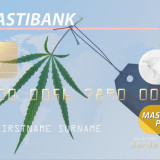U.S. Senator Mark Warner chose the end of the holiday shopping season to introduce a bill that would mandate prepaid card fee disclosure. Warner, a Democrat from Virginia, unveiled the Prepaid Card Disclosure Act of 2014 on January 9, and cited the recently completed holiday gift buying season and the industry’s rapid growth as the reasons motivating his bill.
“At nearly $700 billion in sales each year, prepaid cards are one of the fastest growing parts of the financial industry,” he says. “However, these cards aren’t subject to the same kinds of consumer protections as other types of credit cards and gift cards. It’s important that young people and people without credit history or access to traditional banking tools have access to prepaid cards, but we can’t let the technology outpace smart consumer protections.”
Specifically, Warner’s bill would task the Consumer Financial Protection Bureau (CFPB) with formulating and issuing rules that would require banks and other providers of prepaid cards to disclose their fees in a standardized manner. Among other things, the Prepaid Card Disclosure Act would require card issuers to reveal all of the fees associated with their products in an easily understood and conspicuous table that would be available to consumers before any purchase. In addition, the bill would insist banks allow consumers to use their smartphones to obtain real-time fee updates via a QR code or barcode. The proposed legislation would also require card issuers include both a toll-free telephone number and a website on each physical card where consumers could get detailed information about fees.
In announcing the legislation Warner cited a range of fees that, while commonly associated with prepaid cards, may not be well known among the general public. Among the fees Warner, a member of the Senate Banking Committee, mentioned were fees to activate an account, monthly maintenance fees, and for checking account balances. Consumer advocates warmly received the bill. “Pew commends Senator Warner for taking action to require clear disclosures for prepaid cards. Pew’s research shows that inconsistent disclosures make it very difficult for consumers to understand the terms and fees associated with each card,” says Susan Weinstock, director of safe checking research at The Pew Charitable Trusts. “The growing number of consumers turning to prepaid cards as a way to manage their money underscores the need for reform.”






